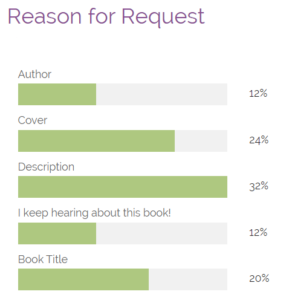Words of Wisdom That Got It All Wrong

“A picture is worth a thousand words.” (1911) Arthur Brisbane, Newspaper Editor
“What’s in a name? That which we call a rose/ By any other name would smell as sweet.” (1595) William Shakespeare, Playwright
“Don’t judge a book by its cover.” (1860) George Eliot, Novelist
I would hazard a guess that everyone has heard these three sayings and understands what they mean. But what would you say if the esteemed editor, playwright, and novelist had it all wrong – at least when it came to marketing a book?
Before its recent release, I put my new novel on NetGalley, but it was just one of thousands of potential ARCs available to readers. Who would find my novel? What would cause a reader to choose my historical fiction over all the others out there, let alone pick it above books in other genres?
When it comes to picking a book, readers make decisions based on several factors – the advice of others, who wrote it, the cover, what’s written on the back, and the title. As a new novelist without much of a following, the likelihood that someone would choose my book because I wrote it or on the advice of someone who knew it was coming out is slim. That leaves the cover which Eliot warns against, the title which Shakespeare states makes no difference, and the back of the book blurb which Bisbane says is of less worth than a picture.
So, why did readers choose my book? NetGalley provided a chart that helped me understand why, In my case, it was the words written on the back of the book. Sorry Brisbane!
Writing a book blurb is a skill authors work hard to perfect. First comes the hook – a sentence or two that pulls the reader in and lets them know what makes your story unique. Then the introduction to the main characters with a hint at their personalities. Finally, the conflict without giving the resolution away.
In 2nd place was the cover. Sorry, Eliot. It seems that people do choose a book by what they find on the outside.
Working with a professional cover designer can make the difference between a book that gets picked up versus a book that gets passed over. Authors should give readers of their genre what they expect with enough of a twist to make the cover memorable.
In third place was the title. When my first manuscript made it to the publisher, I had been calling it “Lyaksandro” after the first character the reader meets. If Shakespeare were right about names and roses, then Lyaksandro would have been perfect. When it comes to book titles, however, Shakespeare is not right. Lyaksandro is terrible because no one can pronounce it, spell it, remember it, or get a visual image that represents it.
What does all this mean for authors? It means that when it comes to marketing your book, there are many things to consider, far more than the words found on the pages inside.
